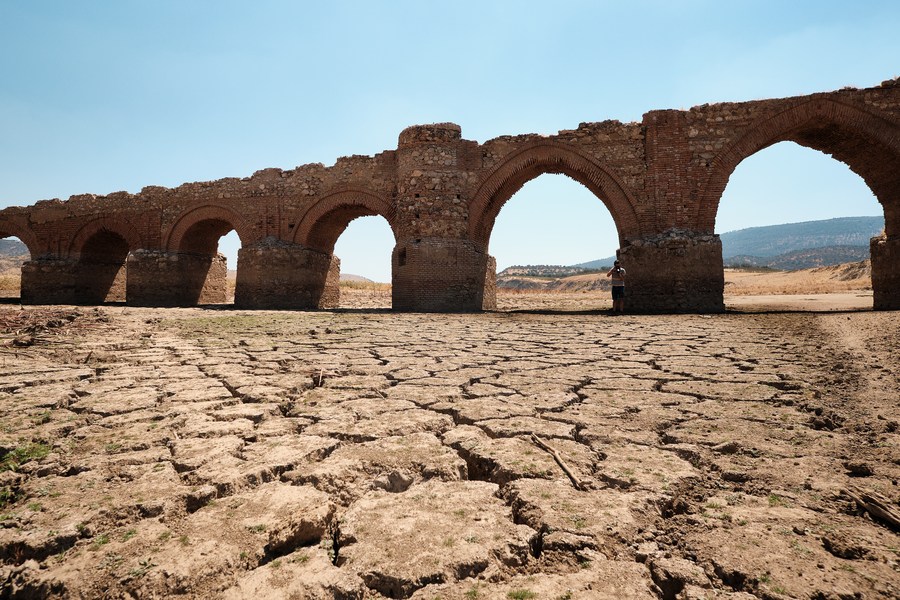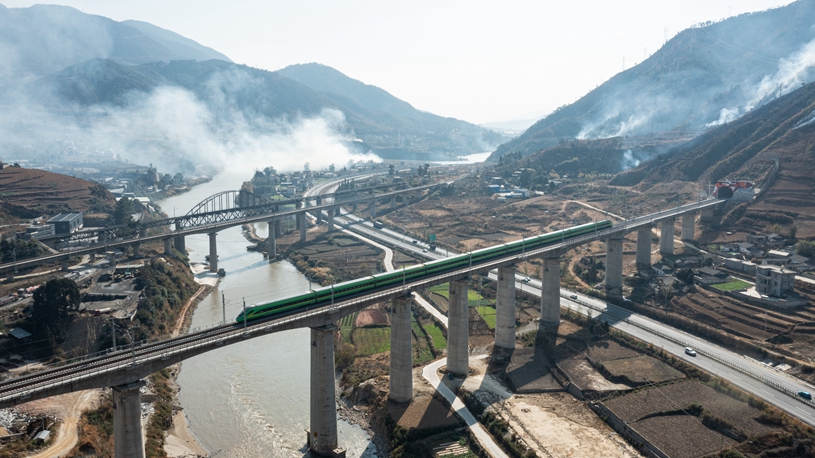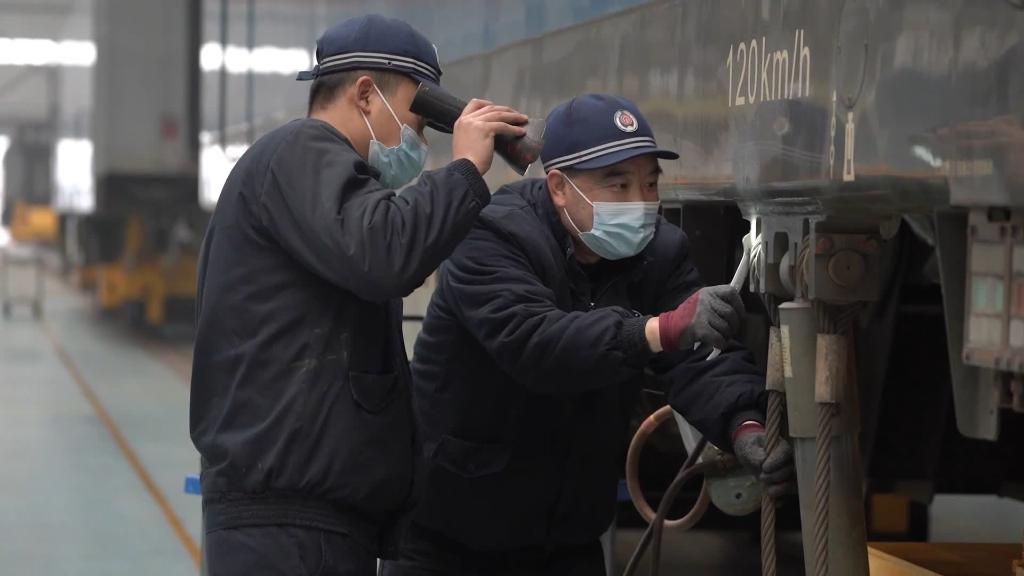
This photo taken on Nov. 11, 2022 shows a thermometer displaying real time temperature as 21 degrees Celsius in Rome, Italy. (Xinhua/Jin Mamengni)
According to temperature data gathered by WMO, 2022 was the eighth consecutive year when annual global temperatures reached at least one degree Celsius above pre-industrial levels.
GENEVA, Jan. 12 (Xinhua) -- Soaring greenhouse gas levels and accumulated heat have led to the warmest eight years on record, the World Meteorological Organization (WMO) said on Thursday.
According to temperature data gathered by WMO, 2022 was the eighth consecutive year when annual global temperatures reached at least one degree Celsius above pre-industrial levels.
The landmark 2015 Paris Agreement pledged to keep global warming "well below" two degrees Celsius above pre-industrial levels, and to strive for a lower limit of 1.5 degrees Celsius.
Meanwhile, the Intergovernmental Panel on Climate Change (IPCC) has underlined that global warming should be limited to 1.5 degrees Celsius or below.

People spend time at a beach in Faliro, a southern suburb of Athens, Greece, on Jan. 6, 2023. Greece has been experiencing unseasonably warm temperatures this winter, prompting people to head for the beach instead of the ski resorts. (Xinhua/Marios Lolos)
However, the latest WMO data has shown that the average global temperature in 2022 was around 1.15 degrees Celsius above pre-industrial levels, while the ten-year average temperature for the period 2013-2022 was 1.14 degrees Celsius above the pre-industrial baseline.
This indicates that long-term warming continues, and the likelihood of temporarily breaching the 1.5 degrees Celsius target is increasing, said WMO.
Global warming and other long-term climate change trends are expected to continue, WMO said, due to record levels of heat-trapping greenhouse gases in the atmosphere.
Extreme heatwaves, drought and devastating flooding affected millions and cost billions in 2022, according to WMO's provisional State of the Global Climate in 2022 report.

Photo taken on Aug. 15, 2022 shows a view of Cijara reservoir in Extremadura, Spain. (Xinhua/Meng Dingbo)
"There is a need to enhance preparedness for such extreme events and to ensure that we meet the UN target of Early Warnings for All in the next five years," said WMO Secretary-General Petteri Taalas.
"Today only half of 193 (WMO) members have proper early warning services, which leads to much higher economic and human losses. There are also big gaps in basic weather observations in Africa and island states, which has a major negative impact on the quality of weather forecasts," he warned.■












